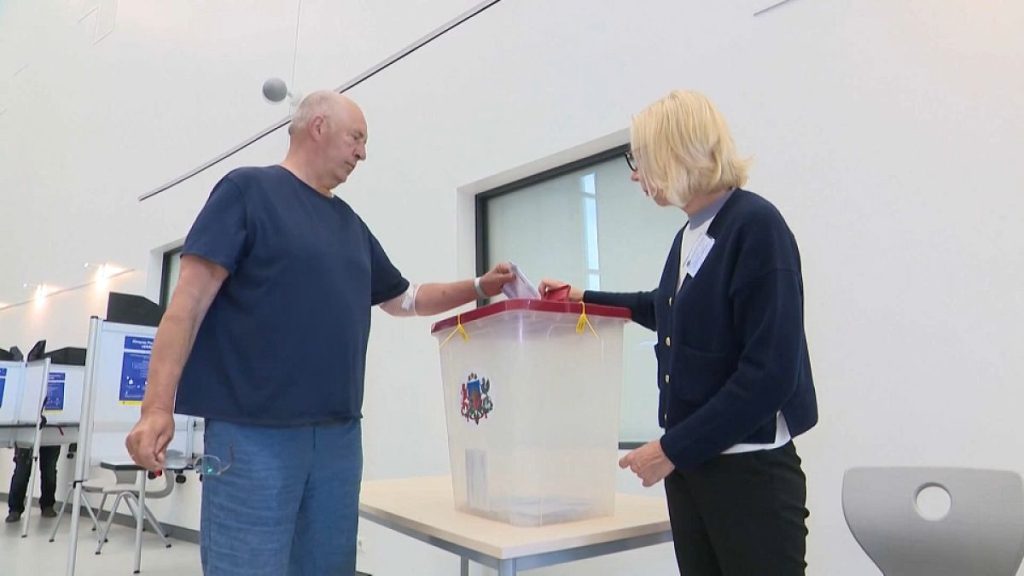According to recent opinion polls, around a third of respondents in Latvia expressed no interest in the EU elections. Despite this lack of interest, the final voter turnout for the EU elections was stable at 33.7%, slightly higher than in previous years. However, this turnout is still significantly lower than in 2009 when over half of eligible voters participated. Respondents aged 18-29 were the least likely to express interest in the elections, while older respondents aged 60-74 showed more engagement. Candidates from 16 parties are competing for Latvia’s nine parliamentary seats, with the National Alliance, Progressives, and New Unity party leading the polls.
The National Alliance party, with lead candidate Roberts Zīle, is focused on defending Latvia’s interests in the EU, particularly in areas of defense and border security. The Progressives party, led by former presidential contender Elīna Pinto, advocates for support for Ukraine and stricter environmental controls. The New Unity party, led by EU Commissioner Valdis Dombrovskis, takes a strong stance against Russia and supports EU enlargement. Security is a key issue in Latvia, especially following Russia’s invasion of Ukraine in 2022, and the government has reintroduced conscription to bolster defense efforts.
Last month, protests broke out in Latvia over the national broadcaster’s decision to hold pre-election debates in Russian. Latvia, located on the eastern fringes of the EU and sharing a border with Russia, has a significant Russian-speaking minority. While more than 60% of Latvians speak Latvian, around a third speak Russian. The Public Electronic Mass Media Council declined to block the Russian-language debates, citing interference in broadcasting decisions. Security concerns loom large in Latvia, given the country’s history with Russia and fears of revisionist intentions.
Despite low voter interest in the EU elections, the final turnout in Latvia remained stable. The National Alliance, Progressives, and New Unity parties are leading the polls, with each party focusing on different policy priorities. Security is a significant concern for many Latvians, particularly in the wake of Russia’s invasion of Ukraine. The government’s decision to reintroduce conscription has found support among the public, with many viewing it as crucial for Latvia’s defense. The controversies around the language of the pre-election debates highlight the complex linguistic and political landscape in Latvia, where issues of identity, security, and EU relations are intertwined.


